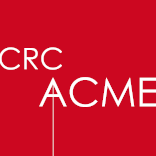Shantanu Biswas Linkon

COORDONNÉES :
Chaire de recherche du Canada en architecture, concours et médiations de l'excellence
Laboratoire d'Étude de l'Architecture Potentielle
Thesis title: Reevaluating the Social Value of Architecture in the Public Realms through Inclusiveness and Environmental Justice
Conventional architectural practices have long been criticized for their poor consideration of users’ inclusion in the process, disregard of social dimensions, negligence of autonomy, and altogether for their inability to integrate participatory practices. Despite the introduction of Sustainable Development Goals (SDGs) by the United Nations in 2016, most professionals still focus on environmental and economic sustainability only. The main value system is currently oriented towards mere beautification and formal representations that often escape the user’s lived experience. This resistance jeopardizes the social value of architecture while bottlenecking overall sustainability. Generally, in the built environment, design value is widely accepted to be the sum of environmental, economic, and social value. We now need to question by saying ‘A whole is greater than the sum of its parts.’ While environmental value is generally measured in embodied and operational carbon or sometimes with the addition of biodiversity, there are several recognized methods for measuring economic value. Although architects often do not like to see themselves as an increment of economic gain, they create a huge amount of social value that they very often fail to record. Moreover, there are no agreed measures of social value. Until this social value is expressed in a format that can be fed into policy and procurement, it will remain ignored, leaving economic and environmental value as the sole dominant currency of built environment transactions. While the SDGs are a universal call to action, social value is a tool that is more local and individual. The definite objectives of this research are –
- To examine the evolution of social value in contemporary design and architectural value systems
- To analyze public architecture in diverse urban contexts, for design parameters, from inclusiveness and environmental justice approach.
- To develop a ‘social value index’ for inclusive architecture based on the performance of design parameters.
